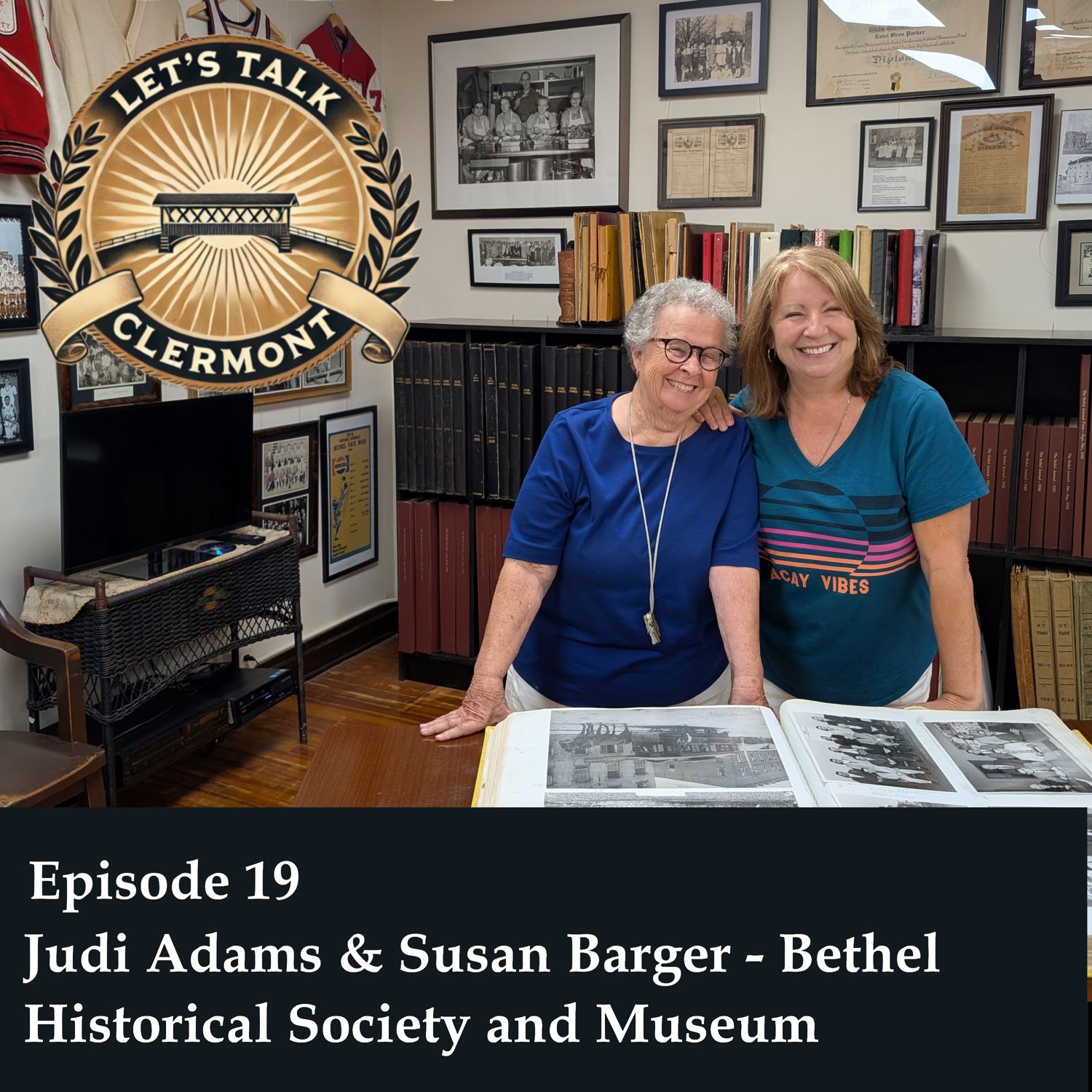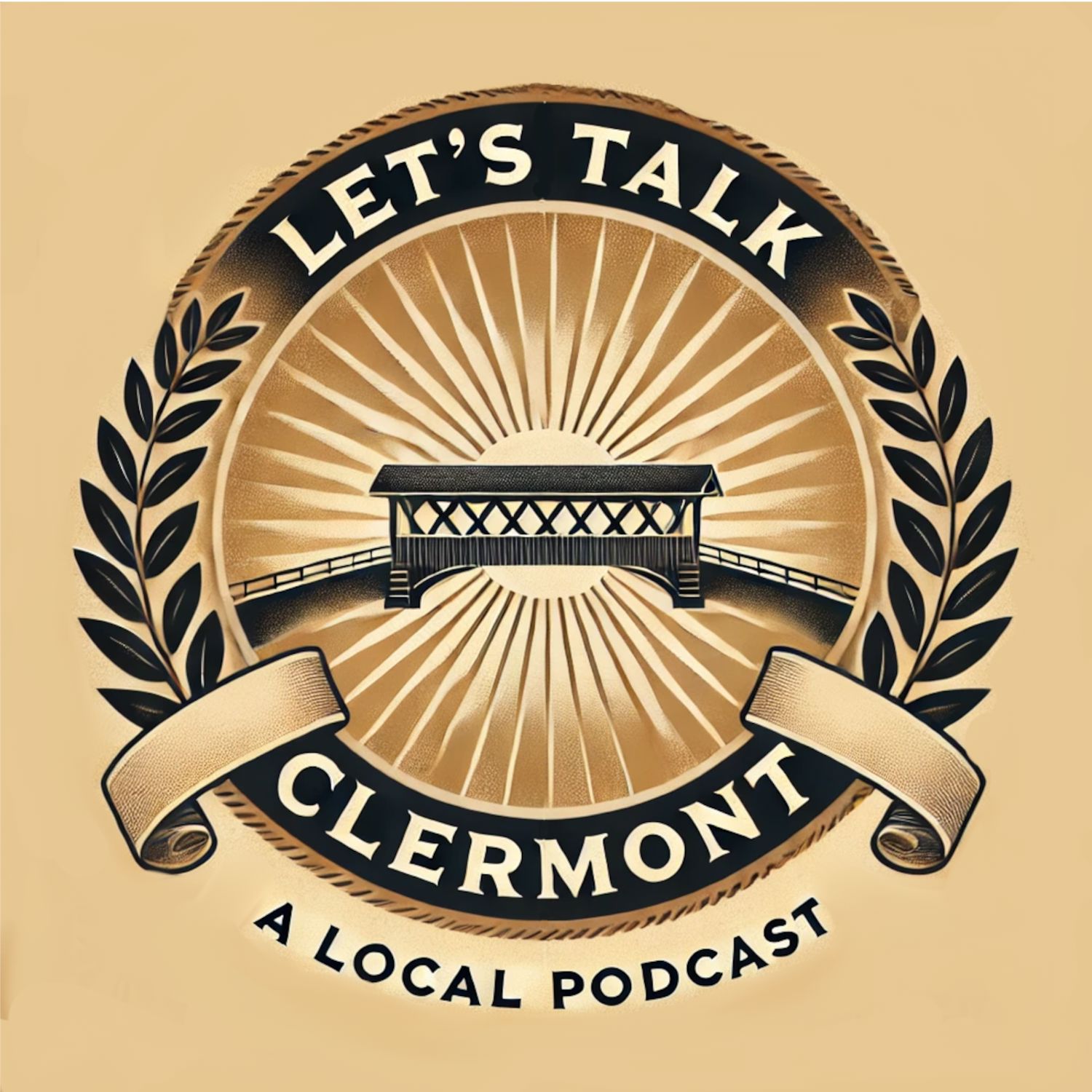07 August 2025
Episode 19 -Judi Adams & Susan Barger - Bethel Historical Society and Museum - E19

Episdoe 19 of Let's Talk Clermont. In this episode we talk with Judi Adams and Susan Barger from the Bethel Historical Society and Museum. They share the inspiring story of how they revitalized the museum, local Civil War and Underground Railroad history, and their favorite artifacts (including Jesse Grant’s plumbing). You’ll also get updates on upcoming Clermont County events including Shakespeare in the Park, archery lessons, and more!
Like what you hear? Consider making a donation! Any amount helps us keep the show going.
👉 Donate here
